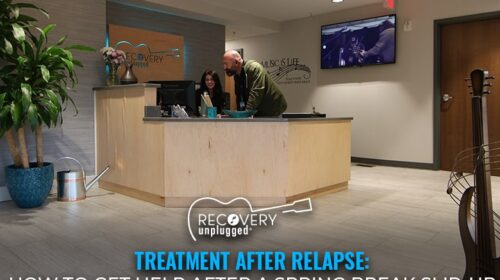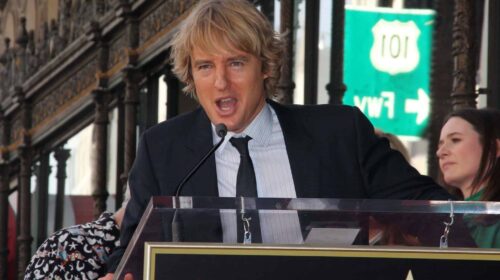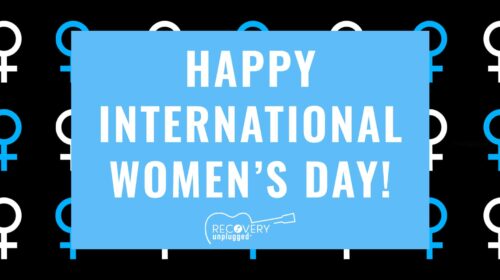Think, for a few minutes, about what triathletes go through during training. Consider the punishment to the body, the constant pushing of the “mind-over-matter” envelope, the aches, pains, and frequent disappointment as they fall short of their personal goals, day after day, in pursuit of bettering themselves and of the pride that comes with saying: “I can.”
Now picture a life of past trauma and triumph that puts all of that punishment, self-discipline, and sacrifice roughly on par with getting an ice cream cone, and you may be able to understand Mark Turnipseed’s unique journey.
Some of Mark’s official titles include sober triathlete, author, father of two, and owner of Integrity Endurance, an organization that connects individuals in recovery from opioid addiction with health, wellness, and fitness coaching resources. What he ultimately represents, however, is an example of the reality that any type of life in recovery is possible, no matter how bad things may seem and no matter how many times you may stumble along the way.
Recovery Unplugged had the pleasure of speaking with Mark over Zoom (the way things are done these days) about his addiction and recovery, his journey as a triathlete and how he’s using his blog, entitled “Trials to Triathlon”, and his upcoming yet-to-be-named memoir, to help and inspire others battling addiction.
Tapping Into It…
In the most earnest and matter-of-fact way, Mark starts by assuring me that anyone can do triathlons, saying that “it’s about putting one foot in front of the other”, almost as if he’s unaware of the extraordinary nature of his story: “There’s a level of strength in the human individual that allows you to tap into something when you need it. For me, that’s kind of where triathlon fell.”
A child of the American South, originally from Atlanta, Mark found himself at permanent odds with his environment because of his sexuality. He had lived most of his as bisexual and recently started living as gay. “As a kid, they said ‘if you’re gay, you’re going to hell and if you lie, you’re going to hell.’ So I believed that and thought I was going to hell either way. I also believed that I was going to get AIDS.” Like so many in this situation, this sense of conflict was ever-present in his life and was partly responsible for his addiction.
Mark was already acutely familiar with the principles of Alcoholics Anonymous (AA) by the time he was 15. He became a friend of a friend of Bill W. when someone close to him went to a meeting following a marijuana arrest. “My grandfather had cirrhosis of the liver at the time, and I remember sitting in that meeting, hearing all those guys talking and thinking ‘I need to start being careful. This is a disease that just snuck up on all of them.’” The next time Mark would enter an AA meeting would be when he, himself, was court-ordered to attend them.
Identity Crisis
When he went to college in Montana, Mark became immersed in the party scene, a space in which he continued to feel out of place. “I would look around me, and there would be a whole bunch of people with smiles on their faces, and I’d just think, ‘I don’t like where I am, I don’t like who I am, and I don’t like who I’m with.’ It didn’t make sense until recently…actually while I found triathlon.”
This internal crisis, and many other factors, ultimately gave way to more drinking, along with heroin and prescription drug addiction that dominated Mark’s college years. It was at this time he had his first son with his ex-wife until addiction caused him to become emotionally abusive and drive her away. He was living in Montana next to a ski mountain and describes the next few years of his life as a cycle of drinking, skiing, taking pills, and chasing his next high.
Following a heroin overdose, he entered rehab. “I was petrified because as I looked into the program, I knew it meant being honest with myself.” This was a problem for someone who grew up in a southern Baptist family certain of his attraction to other men. “This is something I was willing to take to the grave with me,” Mark confesses. He got the courage and inspiration to start being more open and started proudly living on what he describes as a “pink cloud” until an HIV scare caused him to push everyone and everything away…except drinking and drugs.
The Assault, The Failure of the System, and The Accident
Mark became a victim of sexual assault for the third time when a colleague took advantage of him at a company party. His previous two offenders were a 25-year-old woman when he was 12 and a close family member when he was six. When he brought his claims to the state victim’s advocacy agency, he found no justice, but instead, outright rejection. “My entire life, I had made myself alone and for the first time in my life, it felt like I was connecting with and helping people. Then this happened and the world had just made me alone.”
Following this trauma, Mark doubled down on his drinking and sustained a severe concussion after skiing drunk at 45 miles per hour. “I couldn’t talk for a week and I didn’t know my friends’ names, so I just made the decision to get a bunch of moonshine and drink myself to the point of disability. I figured I’d be able to get drugs and keep drinking, and that’s all I cared about.”
Family Comes Through
At this point, Mark’s weight had swelled to over 200 pounds and he was struggling with high blood pressure. When his cousin, who was in AA, came for a visit, his outlook gradually rubbed off on Mark. “We would go on these walks and I remember hearing him point out how beautiful everything was, and I remember wishing I could have that experience again—it was so simple. I remembered times when I could look at a house plant and say, ‘that’s beautiful’, and I wanted that again. He soon returned to rehab and life started improving both physically and emotionally. He was looking better, feeling better, and living better, so good that he remarried and had another son.
The Big Three: Relapse, Recovery and Redemption
As good as things were going, however, they got equally bad when Mark went through what he describes as three monumental relapses that altered his recovery and his life forever, and ultimately became the fodder for his “Trials to Triathlon” blog. This time, the trouble started shortly after he remarried, and he became unable to escape his own self-image. “I didn’t have the tools to escape my true identity. I didn’t have a way to escape how I felt about myself. [My wife] kept showing that I was this other person, but I freaked out because I just didn’t feel worthy and I felt like shit about myself all the time. My fear of identity was the first fear I started to overcome.”
As it often does, Mark’s fear of identity also gave way to fear of intimacy, which ultimately gave way to his second major relapse in the series. He fell back into Xanax® abuse and ended up breaking a mirror in his home and passing out “Luckily,” he says before anything really bad happened. His wife forgave him, and he once again reached out for help, only this time, he started letting people in more. “I finally told my wife that I had been bisexual before we married. Up to that point, I was a ‘healed’ bisexual,” he says snickering at the concept. He also reached out to what he described as a “hard-ass” AA sponsor and a triathlete who ended up coaching him for a time.
Fear of Intimacy
His wife, his AA network and his sponsor were genuinely positive influences in his life, but Mark still had tremendous difficulty trusting and letting go of the word “can’t”. It was fear of faith in others and himself that led to this third and final relapse. “I let these people in and they showed me what I needed to do. They said: ‘Follow this plan, and you can recover from drugs and alcohol.’ and ‘Follow this plan, and you can be an Iron Man.’ That freaked me out and brought out my fear that good things could happen to me if I did the right thing. I didn’t believe that things would be OK if I told the truth and I didn’t believe there was any path for me that I couldn’t control.”
Fear of Faith and Hope
The pressure of these rewards got the better of Mark, and he ultimately retreated back into the one thing he thought he could control: his drug and alcohol use: “I knew that I had to fully submit to AA and my triathlon training to get sober and cross the finish line and I just gave up. I told myself I couldn’t do it and wasn’t worth it.” His latest plan of escape was to take hundreds of hits of acid and the remaining stockpile of his Xanax.
He eventually woke up in jail after being arrested for stealing beer at 8 am. When he had come home, his wife and his son were gone. “My drugs and alcohol had once again left me alone and I became suicidal. I took pictures of me finishing off my Xanax and sent them to my family and my ex-wife, and essentially just said ‘goodbye’ to them.” Once again, Mark woke up, this time in a hospital with a pumped stomach.
The Last Time
Eventually, Mark’s wife moved back in, but he still found it impossible to accept that he was worth another chance. He bought a bunch of beer from the grocery store, after which he found himself on the side of a mountain, his dog, and his bottle of vodka in his pick-up truck. “I was going to sit and watch the sunset and told my wife I would jump off a bridge into a frozen river. Luckily, I got so wasted that I couldn’t jump. I stumbled back into my truck and looked at my phone, and I saw all these messages from my friends and family telling me that I could do this and that I was worth it,” he says as his eyes well up and his voice cracks.
Even though he still struggled to believe in himself, Mark committed to doing the work for those who cared about him: “I decided that I was going to put one foot in front of the other. I told myself that tomorrow morning, I would get up and train, and then I would go to AA and just do it. Sure enough, it started working.”
The Pay-Off
Shortly after that, Mark crossed his first triathlon finish line, and he could see all the promises of training and recovery coming to fruition. He began rekindling his relationship with his son, from whom he’d been estranged for three years and just kept reaping the benefits of his work. Mark elaborates on the incredible significance of crossing that first finish line: “It ended up representing a lot. At the very beginning, you swim in the freezing cold, and for some reason, I detached from where I was and said, ‘I’m gonna win this thing.’ I poked my head up from the water and saw I was in first place.”
He ended up finishing close to last due to a panic attack he sustained while swimming, but he recognizes that first place wasn’t the victory for which he was striving: “I think I was the very last person out of the water, but I finished and I didn’t care. Crossing the finish line was enough for me. What it ultimately showed me was that I needed to continue to be humble about this sport or it was going to humble me; same with my recovery.”
Mark continues to train, never losing sight of what it’s important or the benefits of the training itself. “I find the joy in the training now, for sure. After a race in Wilmington got canceled, I initially lost my external drive. But when I moved to Colorado and started training for this other race in Boulder, which also got canceled, I looked inside of myself and realized how passionate I was about the training, diet, and all of it, and that led me to accept that I was a bona fide triathlete.
In a moment of unparalleled candor, Mark discusses his final period of self-doubt after his wife had expressed concern over the person triathlon training was making him: “A couple of things happened that made me question whether or not liked this person I was becoming, and I realized that I did and that I’m going to keep doing it.”
He then briefly disappears from the screen and returns with a ‘friend’ to help him drive his point home: “As a child, I liked Minnie Mouse, and my parents kinda shamed me for it,” he says holding up a Minnie Mouse doll. “I decided that wasn’t going to happen again. I like the person I’ve become; I like the recovered addict I’ve become, and I’m going to keep doing it; otherwise, I’m gonna die!”
Mark also realized that he was, in fact, a homosexual and had been his whole life. In a genuine yet tongue-in-cheek way, he credits the Bohemian Rhapsody film and having to wear spandex while swimming as a guide toward this revelation.
The Future
Continued training has helped Mark fully embody the gay triathlete in recovery and use his story to help others struggling with addiction. In his work with Integrity Endurance, Mark works with recovering addicts to help them navigate their personal endurance and fitness journeys and connects them with fitness and wellness resources for holistic and balanced health. “Integrity endurance links clients who are in recovery for opioid addiction and actively seeing a doctor who is drug testing them and giving them maintenance meds with personal trainers and health coaches who volunteer a few hours a month of their time to help the opioid crisis.”
A well-adjusted, wise-beyond-his-years father of two, Mark is an enduring (no pun intended) example of how we can all rise above the most vicious and severe manipulation, abuse, misguidance, and trauma to refocus our lives and take control of our futures. His story tells us that, while our past may inform our present, it doesn’t have to determine our future and that, no matter what, recovery and a better life are possible.
Pre-order Mark’s book now. You can also connect with him on Facebook and Instagram. Join Mark and the rest of the I___Sober Movement to start living your best sober life.

























